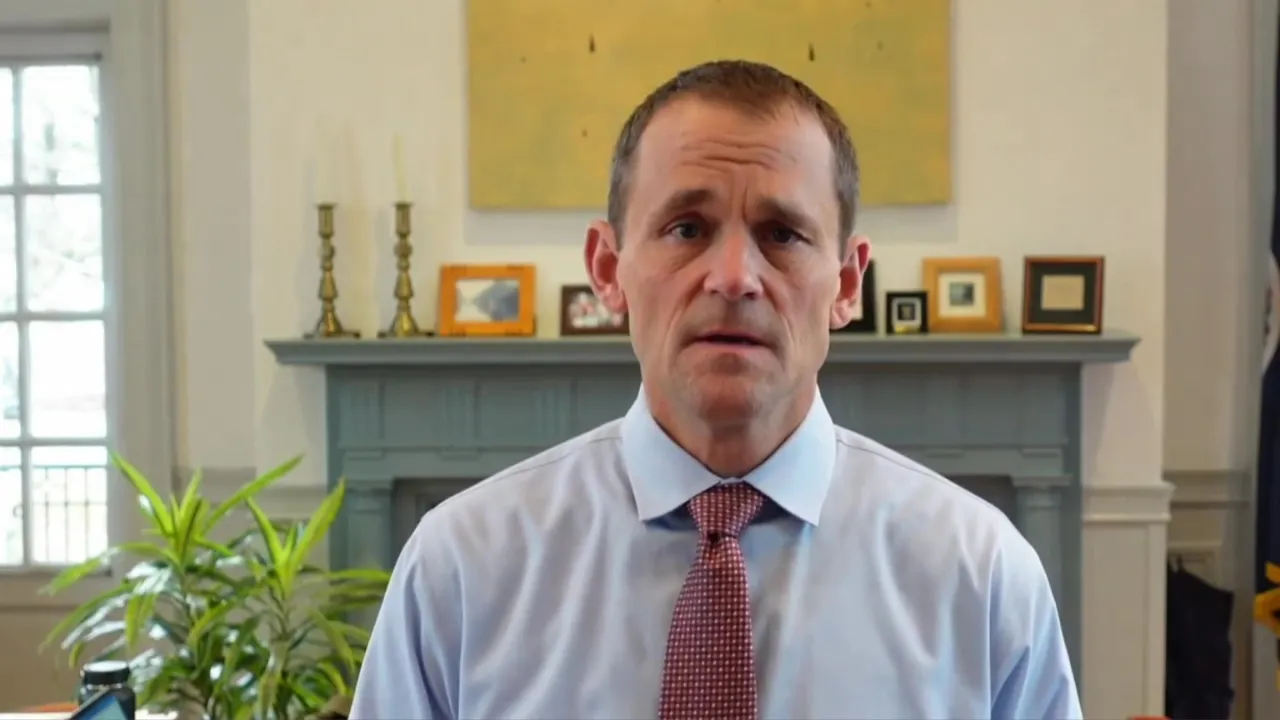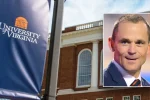Trump DOJ UVA President: In an unprecedented move, the U.S. Justice Department under the Trump administration is pressuring the University of Virginia to remove its president, James E. Ryan, as part of an ongoing civil rights investigation into the school’s diversity, equity, and inclusion (DEI) programs. This rare demand goes beyond the scrutiny of policies—it seeks the resignation of a university leader as a condition for resolving the inquiry. As the national conversation about DEI initiatives intensifies, this federal push marks a critical escalation, highlighting the Trump administration’s aggressive approach to reshaping the landscape of higher education.
Trump DOJ UVA President
The controversy surrounding the Trump DOJ UVA President matter centers on a significant federal intervention. According to multiple sources, the Justice Department has conveyed to UVA that federal funding worth hundreds of millions could be jeopardized unless the university takes “corrective action,” starting with President Ryan’s removal. Officials argue that the president has misrepresented the school’s efforts to dismantle DEI programs and that current practices still contradict recent executive orders targeting race-conscious policies. This development reflects a broader federal strategy aimed at dismantling what the administration sees as ideological bias in academia, particularly at elite institutions.
Overview Table
| Key Aspect | Details |
| Subject | DOJ pressures UVA to remove President James E. Ryan |
| Reason | Alleged misrepresentation and failure to dismantle DEI programs |
| Key DOJ Figures | Gregory Brown (Deputy Asst. Attorney General), Harmeet Dhillon |
| Threat | Loss of federal funding in the hundreds of millions |
| Political Ties | Involvement of conservative board members and alumni groups |
| Timeline | DOJ demands made from April through June 2025 |
| Legal Uniqueness | Rare case of federal agency demanding university leader’s resignation |
| DEI Context | Executive order targeting DEI across public institutions |
What’s Going On
Since early 2025, the Trump administration has intensified its campaign to eliminate DEI programs across federal and educational institutions. UVA, despite officially closing its central DEI office, has been accused of maintaining such initiatives under different names. According to the DOJ, President Ryan’s administration has not only failed to fully comply with recent federal orders but has also misrepresented the extent of changes to the government. The Justice Department has framed these actions as a violation of civil rights laws, asserting that UVA must take further steps to resolve the matter—including changing its leadership.
DOJ’s Demands
Deputy Assistant Attorney General Gregory Brown and Civil Rights Division head Harmeet Dhillon have repeatedly told UVA officials that the investigation can only move forward if Ryan steps down. These demands reportedly began in late April, accompanied by a formal letter requesting proof that all DEI-related efforts had ceased. The university was also instructed to submit internal records, confirm with students and staff that such programs no longer exist, and comply with a May 30 deadline. The DOJ has made it clear that noncompliance could result in massive funding cuts affecting academic programs and research.
Officials and Allies
This push is not occurring in a vacuum. Gregory Brown, a UVA alumnus with a history of legal action against the university, has played a central role in the case. Dhillon, who earned her law degree from UVA alongside Ryan, is also spearheading negotiations. Beyond DOJ staff, conservative alumni organizations such as the Jefferson Council have rallied behind the effort, calling for Ryan’s removal and full elimination of DEI culture at the university. These groups accuse the administration of rebranding rather than removing these initiatives, undermining the intent of the law.
Funding at Stake
One of the most critical pressure points is financial. The DOJ has warned that federal research and development funds—totaling hundreds of millions—could be withdrawn if the university does not demonstrate compliance. These funds support vital scientific research, faculty development, and student financial aid. The threat of such a loss creates intense pressure on university leadership and could have ripple effects across departments. It raises concerns about how federal leverage is being used to enforce political goals and whether academic freedom is at risk in this escalating conflict.
A Precedent Break
Legal analysts have described the Justice Department’s strategy as highly unusual. Typically, such demands might be expected in criminal investigations involving corporate corruption, not university policy debates. Daniel C. Richman, a Columbia law professor and former federal prosecutor, remarked that the tactic signals the administration’s willingness to use aggressive legal means to achieve ideological aims. It sets a potentially dangerous precedent where political agendas influence higher education governance, a space historically protected from such interventions.
Campus and Alumni Reactions
The university community is sharply divided. Supporters of President Ryan, including faculty members, students, and alumni group Wahoos4UVA, argue that the Justice Department’s approach is a political overreach that threatens academic independence. They see Ryan’s leadership as vital to fostering inclusion and intellectual diversity on campus. On the other hand, conservative factions believe Ryan’s resignation is essential to ensure that the university complies with federal law and sheds what they view as politicized programming. This clash underscores a broader national divide over DEI and its place in education.
Wider Context
This confrontation is part of a larger effort by the Trump administration to challenge DEI initiatives across America’s elite schools. Harvard, Northwestern, and NYU have also been targets of federal scrutiny. In some cases, student organizations and editorial boards have come under fire, further intensifying fears that federal power is being used to police thought and speech on campus. This pressure campaign appears to be coordinated, extending influence from administrative offices down to student-run institutions.
What Happens Next
With the DOJ’s deadline passed, the situation remains tense. University officials, including board members appointed by Republican Governor Glenn Youngkin, are reportedly in discussions about potential compromises. Whether Ryan will resign remains uncertain. The university must now decide whether to stand its ground or risk losing federal funding—a choice that could influence the future of university governance far beyond Virginia.
FAQs
1. Why is the DOJ asking for President Ryan’s resignation?
They believe he misrepresented UVA’s compliance with orders to eliminate DEI programs and view his removal as necessary to resolve their civil rights investigation.
2. What funding is at risk?
UVA could lose hundreds of millions in federal research, grant, and educational funding if it doesn’t meet the DOJ’s demands.
3. Who are the main figures involved in the DOJ push?
Deputy Assistant Attorney General Gregory Brown and Civil Rights Division head Harmeet Dhillon are leading the effort.
4. Is this kind of DOJ demand common?
No. Legal experts say it’s rare for federal officials to seek leadership change at a public university as part of a civil investigation.
5. How are students and faculty responding?
Reactions are mixed. Some support Ryan and academic independence; others want full compliance with federal rules and removal of DEI programming.
Final Thought and Call to Action
The Trump DOJ UVA President standoff is more than a legal matter—it’s a moment of reckoning for higher education. At stake is not just funding or leadership, but the very principles of university independence, free inquiry, and how America defines equality in education. Whether you’re a student, educator, alum, or concerned citizen, now is the time to stay informed and speak up. Share this article, comment below with your thoughts, and let’s keep the conversation alive—because the choices made at UVA today could shape the future of universities across the nation.






